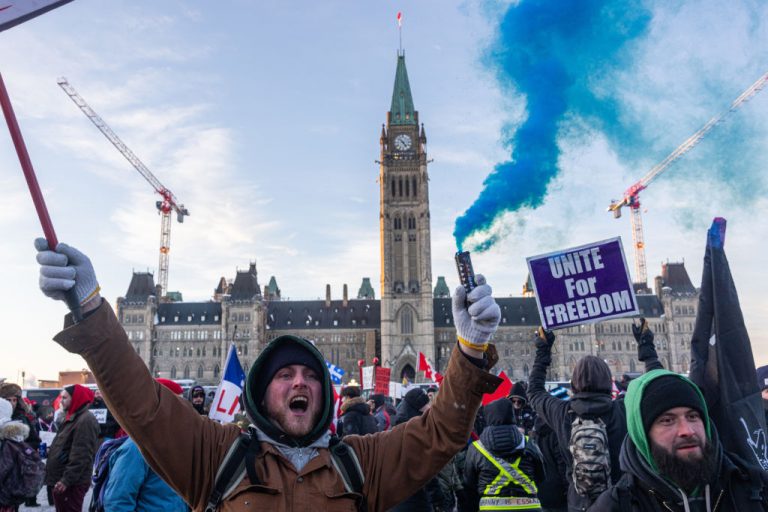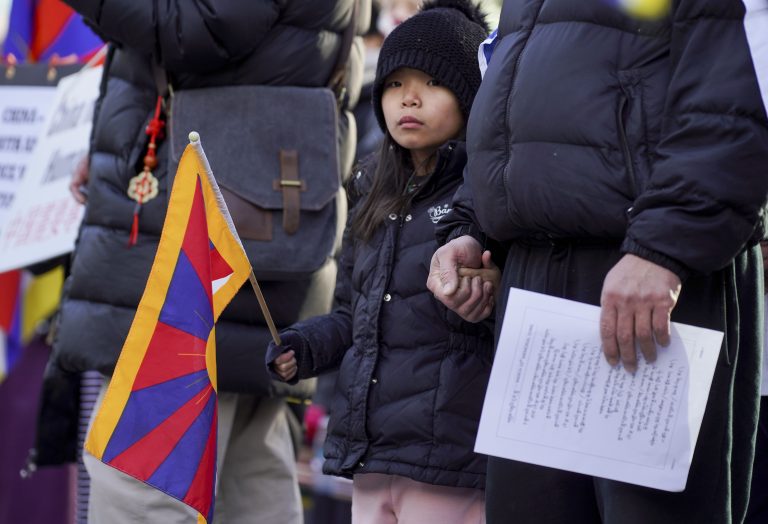Two Canadian provinces announced on Feb. 8 that government-mandated vaccine passports would either quickly or immediately come to an end.
Saskatchewan Premier Scott Moe, a Conservative, was the first to break the news that his province would end the practice of requiring citizens to show their papers to enter public businesses such as bars, restaurants, theaters, and other events starting on Feb. 14, and that mask mandates would cease starting March 1.
According to the Canadian Press, Moe, who had expressed his support for the Freedom Convoy truckers occupation protest of Canada’s capital, Ottawa, stated that health papers had created a society with “two classes of citizens.”
Moe added that he now feels the benefits of vaccine passports to theoretically battle SARS-CoV-2, the virus that causes Coronavirus Disease 2019 (COVID-19) “no longer outweighs the costs,” and that governments should respect citizens’ bodily autonomy rights to decline vaccination if they choose to, free of coercion.
RELATED READING:
- Ontario Study: Double Jabs Give Negative Vaccine Efficacy Against Omicron, 95 Percent of Cases Fully Vaccinated
- 42 People Get COVID at Fully Vaccinated Birthday Party at Vaxx Pass Restaurant in 87% Double Jabbed Ontario
- It’s a Pandemic of the Vaccinated, Canadian Hospitalization Data Shows
Success
You are now signed up for our newsletter
Success
Check your email to complete sign up
During an evening press conference the same day, Alberta Premier Jason Kenney, also a Conservative, announced his province would scrap vaccine passports effective midnight and would also end mandatory mask edicts on March 1.
Kenney, who is facing a lesser-known annex of the Freedom Convoy protest in the form of a blockade at the Alberta-Montana Canada-U.S. border in Coutts that recently saw farmers roll in heavy machinery in support of truckers after demands were unaddressed the day prior, stated that Alberta’s vaccine passport program has “outlived its useful purpose.”
The Premier’s speech also demonstrated sobriety about the Omicron variant of SARS-CoV-2 not being the end of the pandemic, “None of this is an end to COVID-19. New variants will arrive, and we will still see times when cases are higher in the province.”
“We will likely also see times when there is additional pressure on the hospitals. But restrictions, mandates and those kinds of interventions will not and must not become a permanent feature of our lives.”
He continued, “We are well-positioned to live with this virus, as we do with many other infectious diseases.”
Kenney drew a line in the sand in January against mandatory vaccination edicts after Canada’s francophone province, Quebec, announced it would employ a financial penalty against its remaining 11 percent unvaccinated population.
Premier Francois Legault was forced to walk back the initiative only twenty days later.
Although Legault also announced on Feb. 8 that his administration would begin the removal of capacity restrictions on private indoor restaurants, he remained committed to keeping health papers and mask mandates in force until mid-March, at a minimum.
Kenney added during his press conference, “These restrictions have led to terrible division even amongst families and friends, and inflamed, sometimes, tensions in our communities and neighbourhoods,” according to Epoch Times.
“They’ve disrupted and even destroyed so many livelihoods. We will never know, we’ll never be able to do a full accounting of the extent of the pain and hardship that restrictions have caused”
“But we do know some things: we know we have seen in Alberta and across the developed world a significant increase in mental and emotional health challenges amongst children and adolescents…we have seen the failure of many businesses, and of course, at the beginning of the pandemic, record-high unemployment.”







